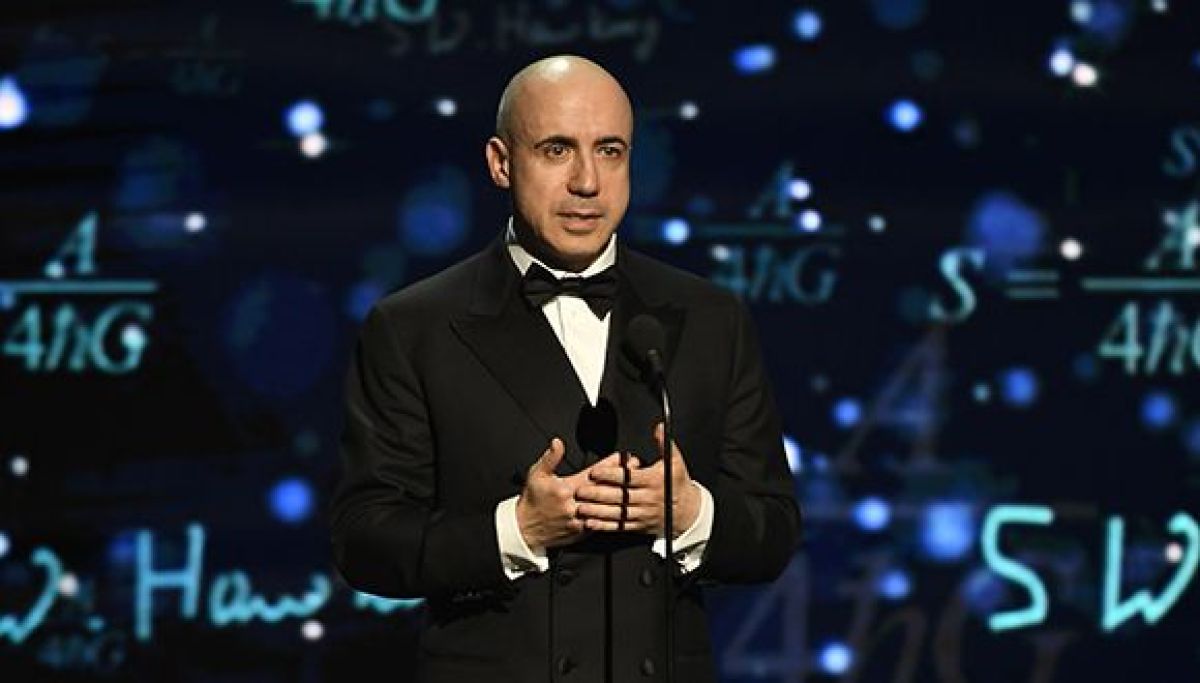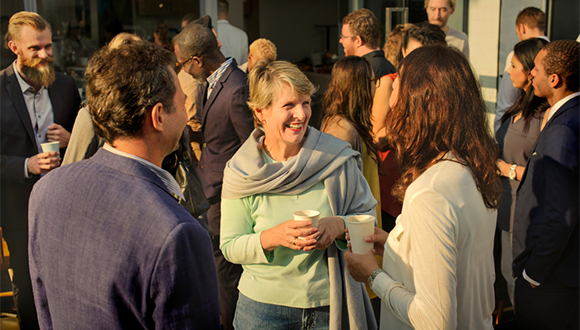COVID-19 Takes TAU’s Legal Clinics into High Gear
Clinic staff share experiences of protecting those most affected by pandemic
Dr. Yuval Livnat, Adv. Anat Ben Dor and Adv. Irina Rozina
The Refugee Rights Clinic
“The coronavirus crisis forced the Clinic to shift to remote work. However, this style of working is not ideal for asylum-seekers, and significant challenges arose. Intake interviews with new clients are complex; they touch on sensitive issues and may require translation services. The absence of face-to-face interviews makes it hard to build trusting relationships, and the completion and transfer of required forms and documentation is difficult; protecting personal privacy and information is problematic when communication takes place over the telephone or on Zoom. During this period, the refugee and asylum-seeker community faces a major economic crisis. Israeli citizens are supported by a social safety net. Asylum-seekers are not eligible for this support and have legitimate fears that they will be unable to pay rent and feed their children. In light of this harsh reality, April’s Supreme Court ruling cancelling the “Deposit Law” (authorizing the expropriation of 20% of an asylum seeker’s monthly earnings) provided some relief. This decision came three years after the Clinic filed the Supreme Court petition arguing that the deposit violated the workers’ legal rights, in cooperation with Kav LaOved. The Supreme Court ordered that funds be returned. The Clinic’s students, along with volunteers from Kav LaOved, helped asylum-seekers to complete the required forms and open bank accounts, so their deposits could be returned.”
Adv. Liad Strolov and Adv. Yael Havassy
The Clinic for the Rights of Holocaust Survivors and the Elderly
“The coronavirus crisis has significantly impacted our clinic. Firstly, the way we work with clients and students changed entirely after we transitioned to online rather than in-person meetings. This is particularly challenging for older clients that are unfamiliar with Zoom and other technologies. In addition, since the elderly population faces the greatest risk from the coronavirus, many are suffering from side issues caused by the crisis such as intense loneliness; inaccessibility to caregiver services; threats of eviction from nursing facilities due to an increased demand for space to care for COVID-19 patients; restrictions on movement in public housing facilities; and of course, restrictions barring them from returning to work under the current emergency regulations.”
Adv. Irit Ulman and Adv. Idit Zimmerman
The Workers’ Rights Clinic
“At the onset of the pandemic, it was clear that regulations regarding labor law and social security would be greatly affected. Israel opted to deal with the widespread closure of workplaces by increasing and extending unemployment benefits. As the number of unemployed Israelis continued to rise, those of us working in the field were occupied with unprecedented challenges to labor law resulting from the crisis. From the outset, the Clinic collaborated with various organizations to ensure that workers’ rights were protected. In early April, the government passed emergency regulations eliminating the legal requirement for employers to obtain a permit prior to sending female employees under protection (e.g. during pregnancy, maternity leave, etc.) on furlough. We submitted an urgent petition to the Supreme Court on behalf of a group of organizations, demanding that the regulations be repealed; the petition argued that the process by which the regulations were passed were flawed, and that the regulations caused disproportionate harm to women. Following the petition’s submission, and prior to a hearing at the Supreme Court, the regulations were annulled.
The crisis also created increased challenges for foreign caregivers working with the elderly, due to severe movement limitations. Since there is an increased risk to the elderly, family members often placed severe restrictions on the movements of in-home caregivers. Although their fears may have been warranted, severe restrictions could result in infringements on human rights and workers’ rights (e.g. freedom of movement, loss of days off, etc.). The Clinic, in cooperation with the Clinic for the Rights of Holocaust Survivors and the Elderly, appealed to policy-makers to ensure that the rights of caregivers and the elderly people they support were protected.”
Dr. Eran Tzin and Adv. Amnon Keren
The Clinic for Environmental Justice and the Protection of Animal Rights
“At the beginning of the crisis, the Clinic offered support for animal welfare organizations and activists struggling with challenges arising from the imposed lockdown; the Clinic helped to map crucial issues, formulate strategies, and provided legal advice and representation, as needed. A key aspect of the Clinic’s activities was ensuring ongoing routine care of animals in various facilities (e.g. sanctuaries, shelters, etc.) since severe restrictions on activity and movement limited the possibility of providing them with food and vital veterinary care. The Clinic appealed to the Ministry of Health and other relevant parties, requesting that those caring for animals be exempted from emergency regulations, including in areas heavily affected by the virus. Furthermore, we requested that measures preventing harm to animals be an integral part of any national plan to deal with the crisis. Our efforts, in combination with public pressure, were successful and led to the requested policy changes. The Clinic also succeeded in canceling fines given to individuals while caring for animals, despite their compliance with emergency regulations. These are concerned and caring citizens who volunteered and used their own funds to care for animals, even though they faced financial difficulties due to the crisis.”
Featured image: Human Rights Clinic students and attorneys, Hicham Chabaita and Debby Tal Sadeh.

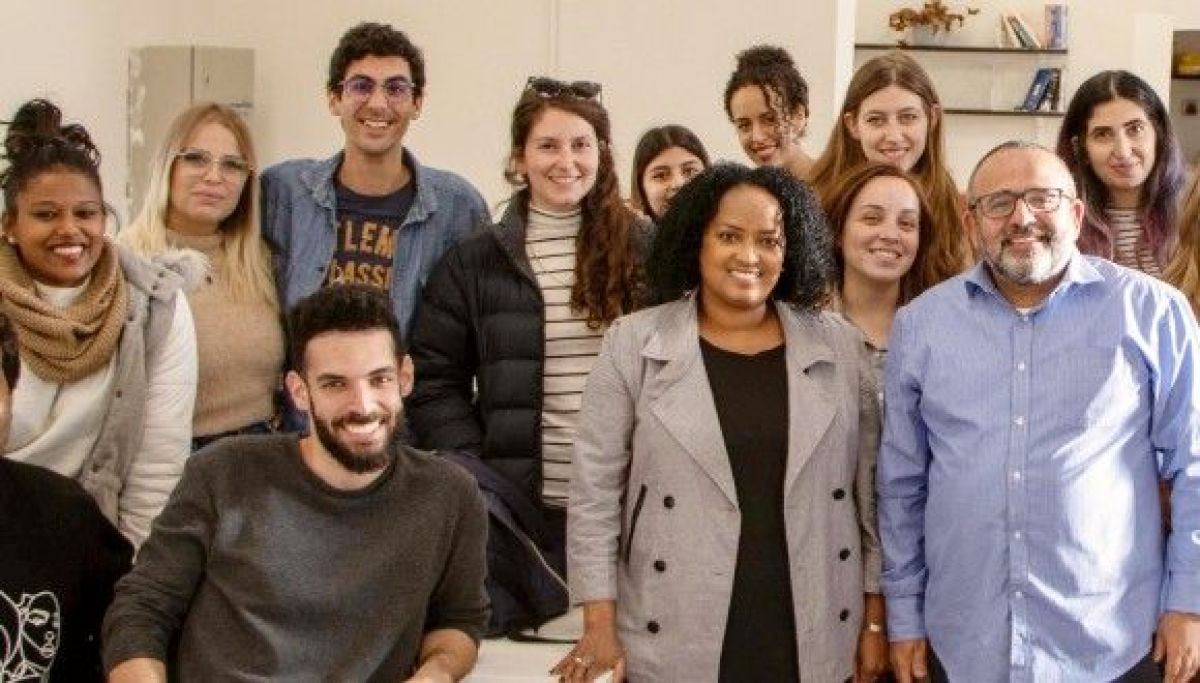


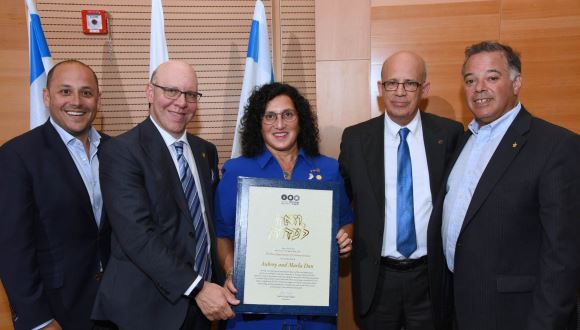
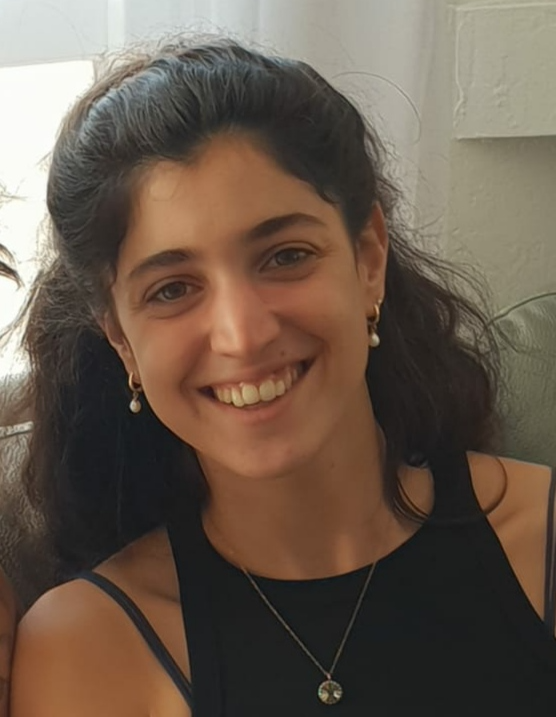

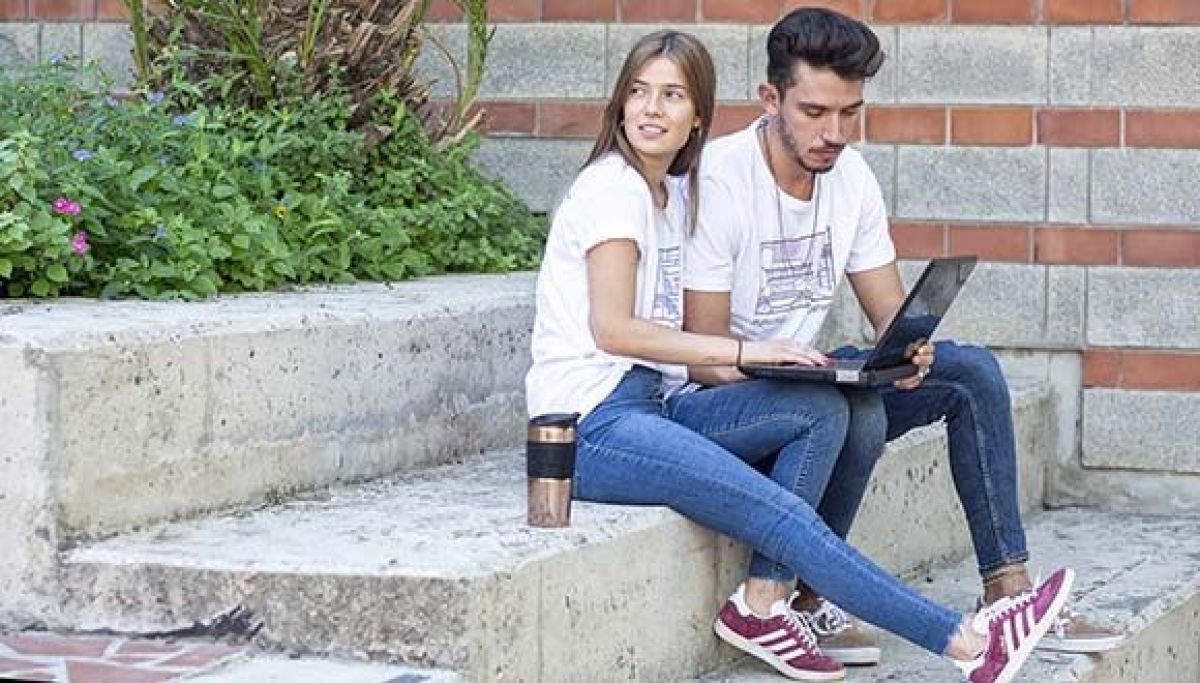


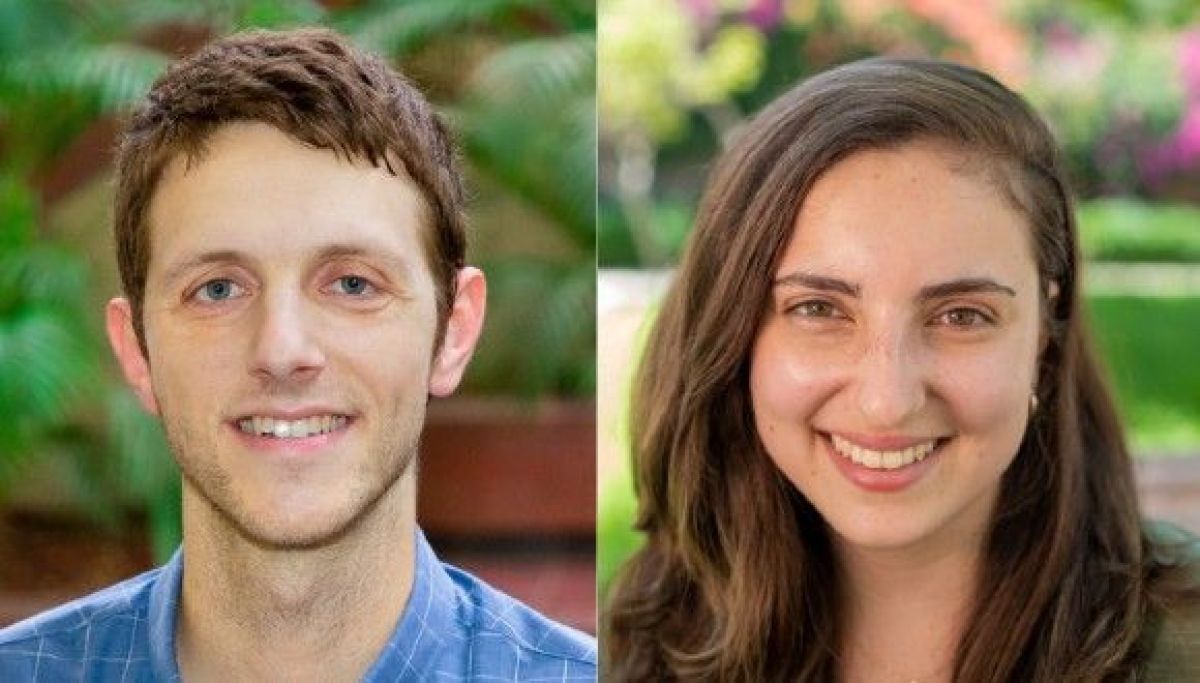
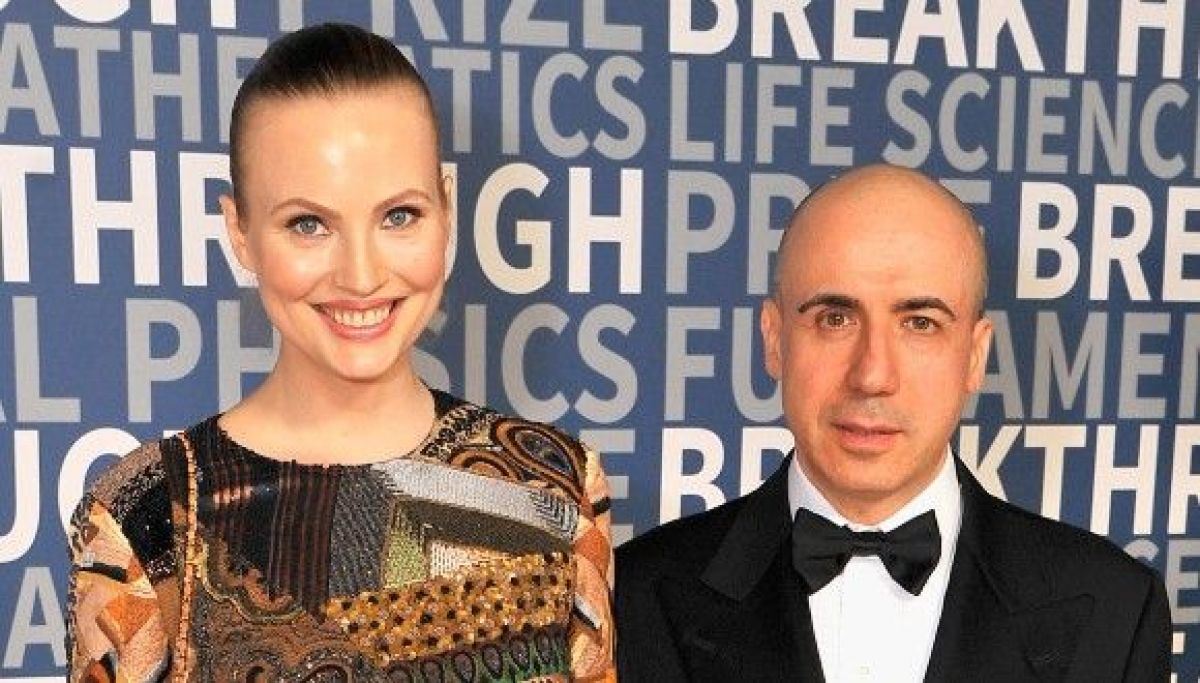
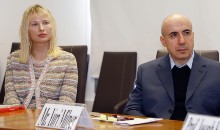 We must also recognize that science is global and universal. It is one of the few fabrics that connects the world and brings us all together. Especially in the world now, when people are feeling separated from each other due to the COVID-19 crisis, I think science is one of those elements that brings us all together.
Photo (left): The Milners at a TAU event in honor of the 70 for 70 Initiative. Credit: Yehonatan Zur.
What lies behind your idea that scientists should be compensated like celebrities?
In today’s world, recognition is based on either celebrity status or financial wealth. Few people are celebrated for their intellectual achievements. What the Breakthrough Prize is trying to achieve is to bring about a more balanced world whereby intellectual achievement will be celebrated at least on par with other achievements, and where scientists will receive the recognition they deserve. We thought that celebrating the most brilliant minds could maybe inspire kids interested in science to pursue an academic career.
What advice would you give to young Israeli scientists who dream of changing the world?
Although I tried for a number of years to do this myself, I wasn’t too successful. My advice would be contrary to my own experience – try to focus on fundamental science. If you put your name on a building, that building will not survive over hundreds of years. But if you make a scientific discovery, this is something that cannot ever be undone. In a thousand years from now, Einstein will still be remembered for his theory of general relativity, while many other great men will be forgotten. So if you really want to leave a lasting legacy for our civilization, the only sure way is through fundamental science and making discoveries.
I envy people who choose basic science as their occupation. Not being able to make a contribution myself, I am trying to focus our foundation on supporting those who can.
Tell us about your connection to Israel and making Aliyah.
I became an Israeli citizen over 20 years ago. This was really an important calling for me because, growing up in the Soviet Union, I had limited ability to connect with my heritage and ancestors in a meaningful way. As soon as it was possible, I decided to become an Israeli citizen and, to the extent possible, to contribute to the State of Israel.
Featured image: Yuri and Julia Milner. Courtesy of Yuri and Julia Milner.
We must also recognize that science is global and universal. It is one of the few fabrics that connects the world and brings us all together. Especially in the world now, when people are feeling separated from each other due to the COVID-19 crisis, I think science is one of those elements that brings us all together.
Photo (left): The Milners at a TAU event in honor of the 70 for 70 Initiative. Credit: Yehonatan Zur.
What lies behind your idea that scientists should be compensated like celebrities?
In today’s world, recognition is based on either celebrity status or financial wealth. Few people are celebrated for their intellectual achievements. What the Breakthrough Prize is trying to achieve is to bring about a more balanced world whereby intellectual achievement will be celebrated at least on par with other achievements, and where scientists will receive the recognition they deserve. We thought that celebrating the most brilliant minds could maybe inspire kids interested in science to pursue an academic career.
What advice would you give to young Israeli scientists who dream of changing the world?
Although I tried for a number of years to do this myself, I wasn’t too successful. My advice would be contrary to my own experience – try to focus on fundamental science. If you put your name on a building, that building will not survive over hundreds of years. But if you make a scientific discovery, this is something that cannot ever be undone. In a thousand years from now, Einstein will still be remembered for his theory of general relativity, while many other great men will be forgotten. So if you really want to leave a lasting legacy for our civilization, the only sure way is through fundamental science and making discoveries.
I envy people who choose basic science as their occupation. Not being able to make a contribution myself, I am trying to focus our foundation on supporting those who can.
Tell us about your connection to Israel and making Aliyah.
I became an Israeli citizen over 20 years ago. This was really an important calling for me because, growing up in the Soviet Union, I had limited ability to connect with my heritage and ancestors in a meaningful way. As soon as it was possible, I decided to become an Israeli citizen and, to the extent possible, to contribute to the State of Israel.
Featured image: Yuri and Julia Milner. Courtesy of Yuri and Julia Milner.
